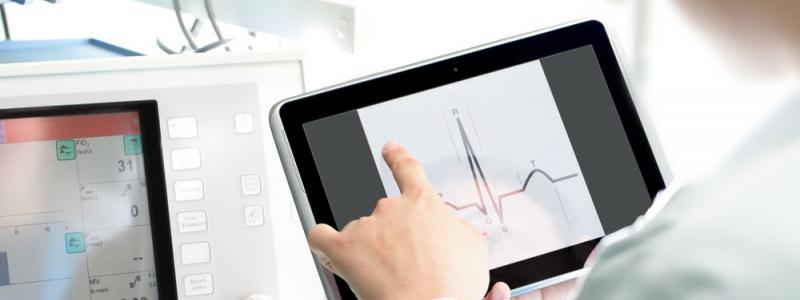Cable Companies Announce Healthcare Initiatives

While it may be surprising to some members of the public, the cable television industry is a growing participant in the healthcare industry. At the recent Healthcare Information and Management Systems Society (HIMSS) Conference in Chicago, cable industry giants such as Comcast, Cox, and Time Warner were out in force demonstrating new innovations that help connect subscribers to healthcare organizations.
Cable companies are poised to become healthcare service providers by implementing new telehealth applications across the broadband cable most customers currently have in their house. The potential for deploying lifesaving medical devices and information across a dedicated high-speed connection are enormous, say some experts.
Recently, Comcast announced an agreement with Cooper University Health Care to provide telehealth services. Time Warner followed suit by establishing HD Video for Healthcare, a system to provide video entertainment and information in hospital patient rooms.
Comcast has told Wall Street analysts that they see enormous potential growth in revenue by providing telehealth medical services to subscribers. Comcast has invested in BodyMedia, a company that develops fitness tracking products, including "smart" bracelets that monitor health indices in real time.
Cox announced the formation of a joint venture with the Cleveland Clinic to provide in-home remote doctor consultations and the application of monitoring equipment that provides real-time information. Doctors and medical officials will be able to track a patient's recovery using feedback, and adjust treatment plans accordingly.
"To really change the healthcare system we have today and get ready for the healthcare demands of the future, we need to change how we think about how and where we deliver medical care. We know that great medicine can be delivered where people are most comfortable: in their homes, and we see telehealth as a method of allowing us to do that better," said Dr. Eiran Gorodeski, a director at the Cleveland Clinic.
A pilot program called Virtual Visit was first launched in 2011 in several Maine hospitals. Doctors were able to remotely link in to patients to provide confidential real-time consultations. Time Warner plans to roll out the the home monitoring system nationwide, connecting doctors to their patients through the internet, television or mobile devices.
"Our technological services are specifically designed to support healthcare providers with the tools that they need to transform the quality of patient care. The way we shall do this is by leveraging our cutting edge technology and our operational scale over our high speed network," said Greg King, a senior vice president of Time Warner Cable.
Verizon announced that it was planning to launch a mobile health software solution designed to connect to remote device. In the comfort of their own home, patients will be digitally measure their blood pressure, glucose levels, oxygen saturation and other key health indices. This information can then be transmitted to doctors and healthcare providers in order to provide real-time health information.
Some experts are predicting that telehealth and telemedicine will someday be as common as using a smartphone. By providing people remote healthcare choices, telehealth could offer better medical services by vastly improving access while reducing costs.
"Telemedicine has the wonderful potential to specifically address the special care access needs for patients living in remote areas," said Jim Walsh, a member of the American Telemedicine Association.
To highlight the cable industry's growing role in the healthcare services provider arena, several company executives collaborated in a session entitled "How Cable Keeps Healthcare Well Connected."
One of the barriers keeping telehealth from becoming a more ubiquitous part of the healthcare experience is the complexity of state and federal laws regarding the storing of medical information. Recently, Congressman Bill Johnson (R-Ohio) and Doris Matsui (D-Calif.) introduced a bill entitled the Telehealth Modernization Act to set national standards and practices concerning medical record storage and access.
"Healthcare is constantly evolving and changing, and so demand for cutting-edge technology is on the rise. Doctors and patients alike are coming to expect always-on 24-hour reliability and accessibility to promote innovation in healthcare technology," said Don Detampel, RVP of Charter Communications.
Related Blog Articles
- Microsoft Outlook App Now Available For All Android Users
- Mobile Advertising Surges 76 Percent In 2014, Per IAB Study
- New Version Of Google Glass Coming Soon?
- Facebook Messenger Now Has Video Chat
- T-Mobile To Team Up With Cable Company?
- Apple To Launch TV Service, Per Time Warner Chief Executive
- Facebook Tests New Feature That Lets Users Pick Which Friends Get Prioritized On News Feed
- Hulu Partners with Turner Broadcast
- Your Guide To Choosing An Early Upgrade Plan For The Samsung Galaxy S6
- Google’s Project Fi Could Pave Way For Cable Companies To Realize Their Wireless Ambitions


 Menu
Menu